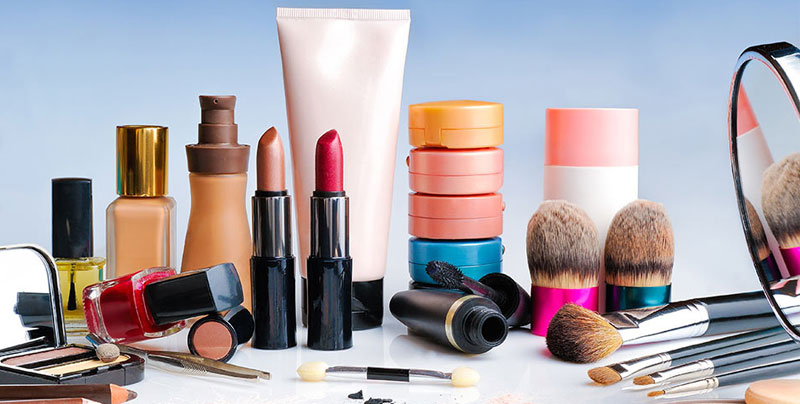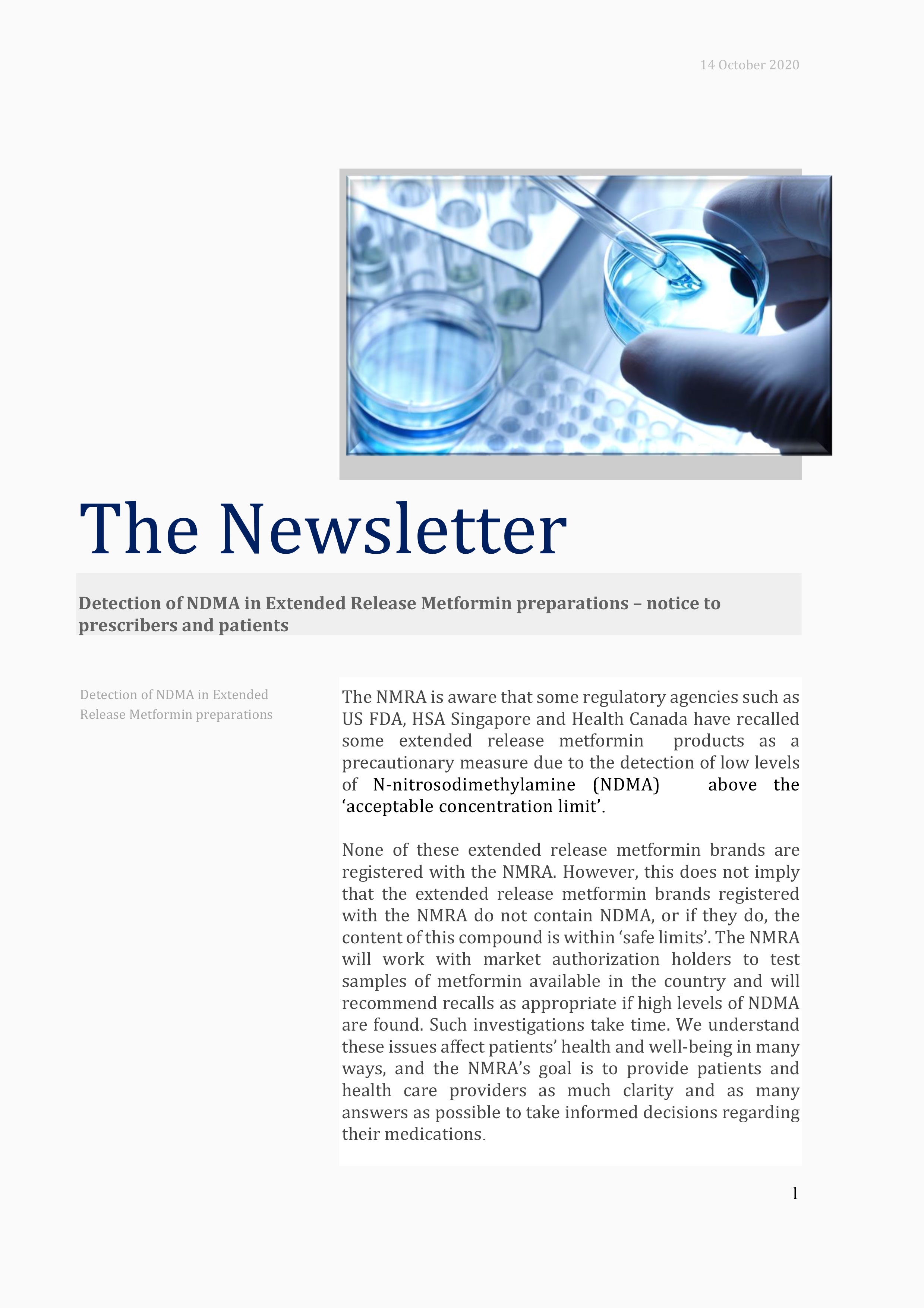People use cosmetics to keep clean and enhance their beauty. These products range from lipstick and nail polish to deodorant, perfume, hairspray, shampoo, shower gel, hair dyes, most soaps, and some cleansing wipes. It is important to use cosmetics products safely.
The National Medicines Regulatory Authority (NMRA) reminds you to get the facts before using cosmetics products.
General Tips
Follow these safety guidelines when using cosmetics products of any type:
- Read the label. Follow all directions and attention all warnings.
- Wash your hands before you use the product.
- Do not share makeup.
- Keep the containers clean and tightly closed when not in use and protect them from temperature extremes.
- Throw away cosmetics if there are changes in color or smell.
- Use aerosols or sprays cans in well-ventilated areas. Do not use them while you are smoking or near an open flame. It could start a fire.
- Details
Detection of NDMA in Extended Release Metformin preparations – notice to prescribers and patients
The NMRA is aware that some regulatory agencies such as US FDA, HSA Singapore and Health Canada have recalled some extended release metformin products as a precautionary measure due to the detection of low levels of N-nitrosodimethylamine (NDMA) above the ‘acceptable concentration limit’.
None of these extended release metformin brands are registered with the NMRA. However, this does not imply that the extended release metformin brands registered with the NMRA do not contain NDMA, or if they do, the content of this compound is within ‘safe limits’. The NMRA will work with market authorization holders to test samples of metformin available in the country and will recommend recalls as appropriate if high levels of NDMA are found. Such investigations take time. We understand these issues affect patients’ health and well-being in many ways, and the NMRA’s goal is to provide patients and health care providers as much clarity and as many answers as possible to take informed decisions regarding their medications.
Metformin is a prescription drug used to control high blood sugar in patients with type 2 diabetes. Patients should continue taking metformin to keep their diabetes under control. It could be dangerous for patients with this serious condition to stop taking their metformin without first talking to their physicians. Therefore, the NMRA recommends prescribers to continue to use the instant release (IR) metformin when clinically appropriate and until the issue is resolved with the manufacturers of ER metformin products, as such contamination has not been detected in the IR preparations. The NMRA will communicate any information we have that is scientifically confirmed to ensure the public is kept informed.
NDMA is a common contaminant found in water and foods including cured and grilled meats, dairy products and vegetables. Everyone is exposed to some level of NDMA. The international scientific community does not expect it to cause harm when ingested in small quantities. The acceptable daily intake limit for NDMA in the United States is 96 nanograms. Genotoxic substances such as NDMA may increase the risk of cancer if people are exposed to them above acceptable levels and over long periods of time, but a person taking a drug that contains NDMA at-or-below the acceptable daily intake limit every day for 70 years is not expected to have an increased risk of cancer.
- Details
Guidance document for local manufacturers producing non- medical face masks
Introduction
A face mask is a device worn over the face to reduce the risk of transmission of pathogens between people, especially those working in healthcare settings. Wearing a homemade cloth mask in the community has not been proven to protect the person who is wearing it. However, the use of a face mask or at least a facial covering can be an additional measure to protect the public from harmful pathogens.
Wearing a mask is another way of covering the mouth and nose to prevent contamination of respiratory droplets from a person to others or landing on surfaces especially when physical distancing is not possible in certain public settings (e.g., grocery shopping, public transport). With the current epidemic situation demand for face masks increased dramatically, and could not be met by the available local production capacity. As a result many others have initiated local manufacturing ventures. However, the local industry has had to face many challenges including lack of specified standards and product specifications as well as testing facilities in Sri Lanka.
- Details
COVID-19 has impacted all facets of our lives over the last few months and is projected to have a significant impact on our country in the foreseeable future. You may also be aware of persons who are directly affected by this disease and the toll it takes on them and their loved ones
- Details
Make sure a harmless remedy doesn’t become a dangerous tragedy! So, before you purchase any medicine, ask your Pharmacist whether they are registered at the National Medicines Regulatory Authority.
- Details











